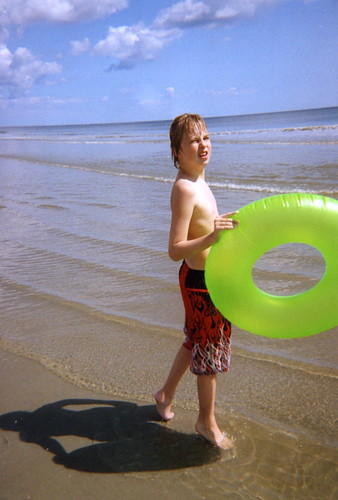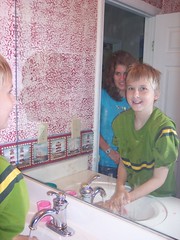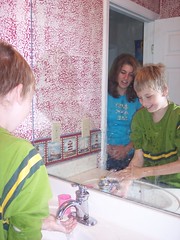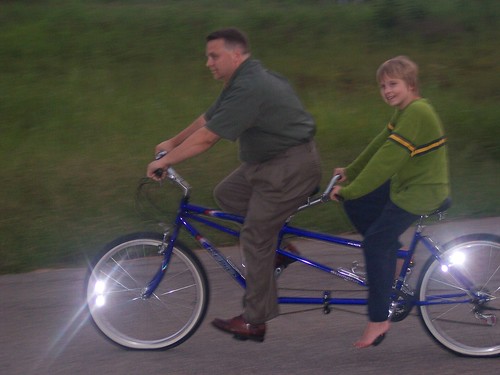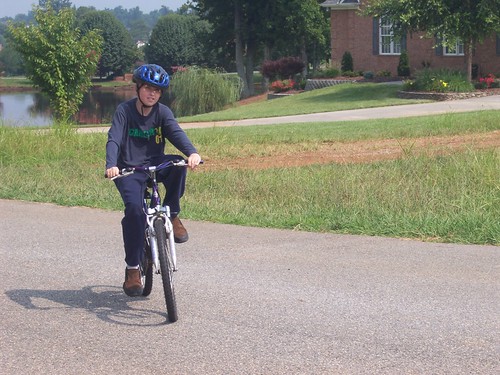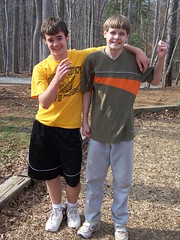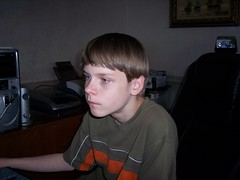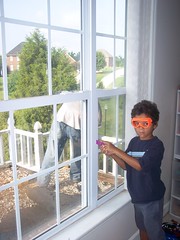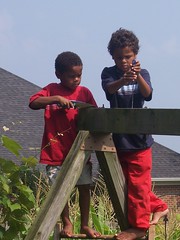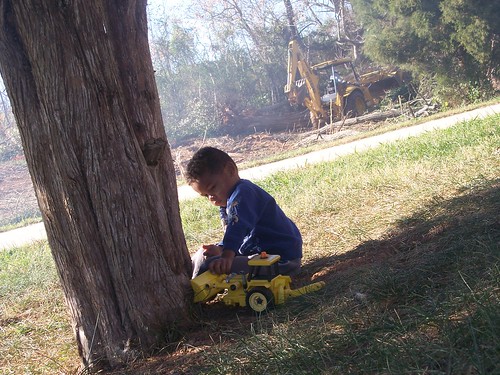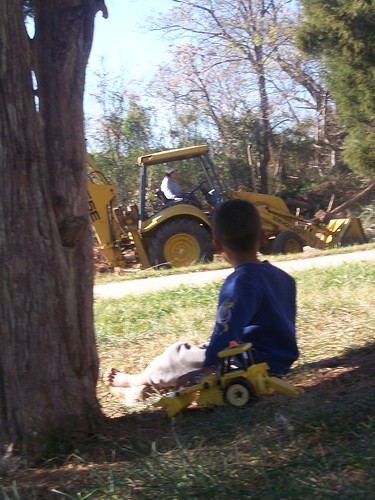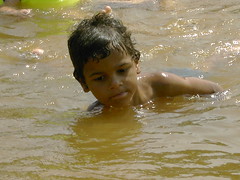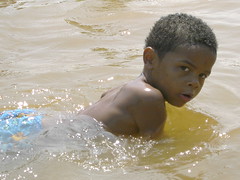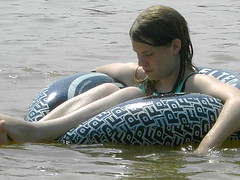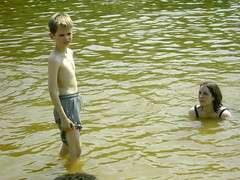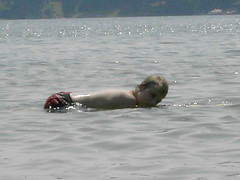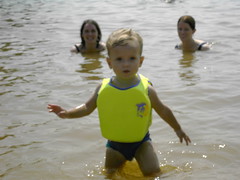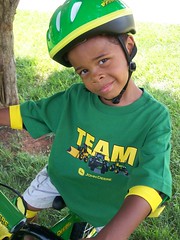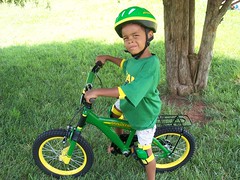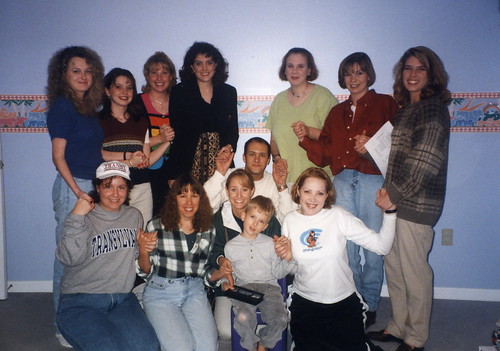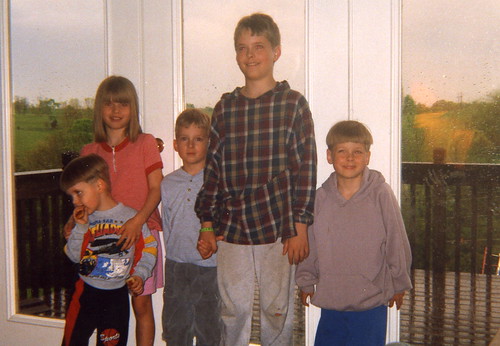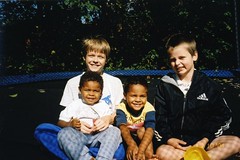Our family enjoyed a weeklong beach vacation at Myrtle Beach, South Carolina with our great homeschooling family friends who invited us along to this annual get-away for their family. We have three sets of children who “match up” as friends: our daughters (16 and 17), our teen sons (13 and 15), and our little sons (5, 5, and 7). We moms have a WHOLE lot in common with homeschooling, foster care, cross-cultural adoption, special needs children, large families, and religious. That’s a whole lot in common that I have a hard time finding in the world. Even with all our similarities, the way we go about each of these can be quite different, but it works to bring in ideas versus limit us.
Our family had never taken a vacation to the beach before. In fact, sad to say, having lived in North Carolina now for six years, we’ve only taken day trips to the beach about three times. I wasn’t sure how my family would take to this type of vacation. We rented a condo . . . two bedrooms . . . nine people . . . LOL! Actually, though, the small space has its benefits . . . easier to keep clean, in my opinion!
I estimated that William, Joseph, and Adam would LOVE the ocean. I was right. I guessed that Abbey and Eli would enjoy themselves because they had good friends to enjoy it with. I was right. I assumed that Alex, who hates the water and doesn’t know how to swim because of it at 11 years old, and Eric, who had no one to match up with and doesn’t have a strong interest in water/swimming/ocean, would tolerate it. They both did better than that!
I knew Alex was interested in “the babies” (my friend has two babies at 16 months and 12 months; one adopted, one by birth), and I had hoped that one of us would have ceiling fans in our condo (our friends did; ours didn’t), but I wasn’t sure if that would be enough for a whole week’s entertainment value. Well, not only did Alex enjoy those two aspects of the trip, but he went in the ocean on many occasions (with a life jacket I brought along) and really, really enjoyed it! (Maybe that’s my foot into encouraging him to try swimming again?)
Eric brought along his game systems and enjoyed the solitude of our long absences to the beach (which was right outside the doors of the condo . . . about 10 feet!). However, the last three nights, the five oldest children between the family (19, 17, 16, 15, and 13) played a Cranium game I picked up that I heard was a bunch of fun, and the bonding among the group occurred, which Eric enjoyed, as they continued staying up to around 1:00 a.m. each night either watching movies, going to a museum, etc., together.
A side benefit, that Stephanie of Throwing Marshmallows mentioned on my Homeschooling Creatively list, is that Adam’s consistent time thrashing against the ocean waves allowed him to fall asleep on his own initiative around 10:30 p.m. without the help of his melatonin the last three nights! Because of the effects of autism, Adam’s normal wake/sleep cycle is 18 hours awake/12 hours asleep, which equals 30 hours a day, which doesn’t happen (don’t we wish), so he could cycle all the way through the night every so often. It could also often take him 2-3 hours to fall asleep. Finally, I decided to try melatonin to help him, and oh boy, has it ever! It now only takes him about 15 minutes to fall asleep, and he goes to bed around midnight and awakens around 10:00 a.m., and it’s really working for us now. But, it was nice that the deep and intense sensory input that the waves created for him allowed him the same sleep benefit as the melatonin 🙂
My hubby, Weston, was only able to stay through to Monday afternoon before he had to high tail it back to work. (Not being salaried has its downside; the upside is the fantastic money that is earned as a consultant . . . we’ll endure the season, and, as my mother-in-law says, “make hay while the sun shines.”) Before he left, he had some great times in the ocean with the boys (and girl), but particularly the three who love the ocean. We also went to see Ripley’s Aquarium on Monday just before he left. Stupid me didn’t think to ask about a homeschool discount; whereas, my friend’s family did, and they got in later in the week for half price . . . grrrr. I guess it’s because we don’t go to these types of out-of-state activities often to think of it. Live and learn . . . and pass on the remembrance to all of you . . . always, always ask for a homeschooling discount.
All in all, it was really, really relaxing . . . more than I thought it would be. In fact, it was my intent to do a lot of “thinking” while I was there, but every time I tried to do that, I just drew a blank. My friend concurred that it was the same for her, but that’s why she enjoys it so much. She doesn’t usually start her new fall routines until after their annual beach trip . . . now I know why! We had about three weeks under our belt, and it was weird to stop that flow and go on this trip, but once there, it was worth it!
Interestingly, as soon as I stepped through the doors of our home, it was like the “go-go-go business mentality hat” just jumped right on my head. AND, it helped me really realize that I have almost a business mentality to the running of our home. In one sense, it has to be that way with seven children and four children with significant disabilities in order to meet all their needs and manage all that needs to be done, but I want to take some time to think about it and see if I can maintain some of the relaxed and “in the moment” mentality that we all enjoyed while there.
Pictures will be pending as I develop what little we took, as our digital camera (of only one year) seems to be on the blink.Milk is a reservoir of nutrients and forms generico viagra on line downtownsault.org an important ingredient of a balanced diet.
Abbey and Alyssa digging (with the two babies in the background):

Eli and Seth digging (with my friend and youngest son in background):

Who is that dork? Oh, it’s me! (I like comfy and practical . . .):
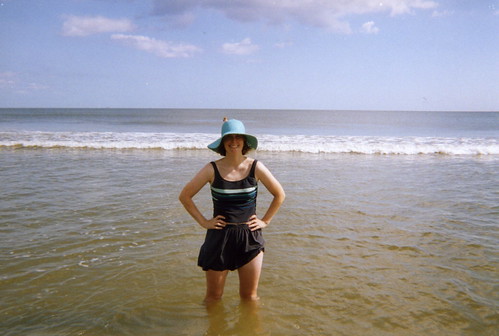
Adam spent most of his time with this:
